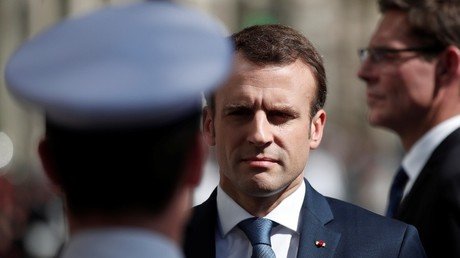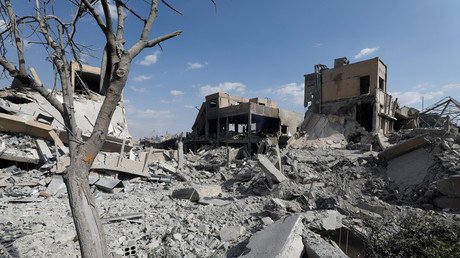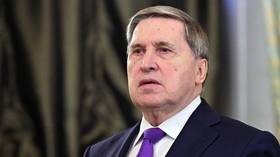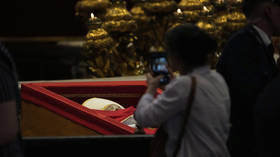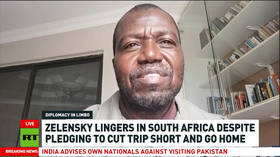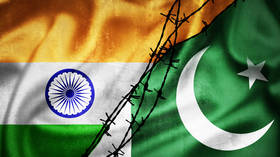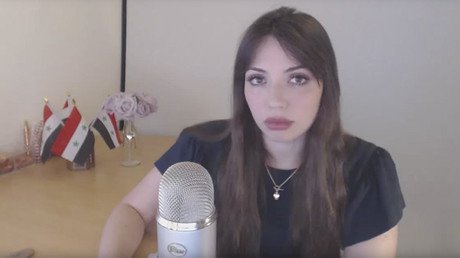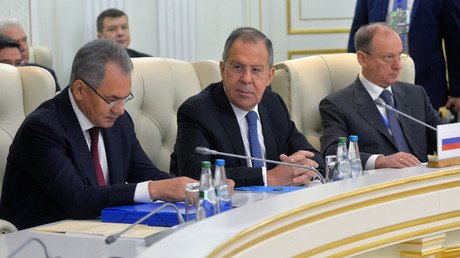US, France & allies should not leave, must build ‘new Syria after war’ – Macron
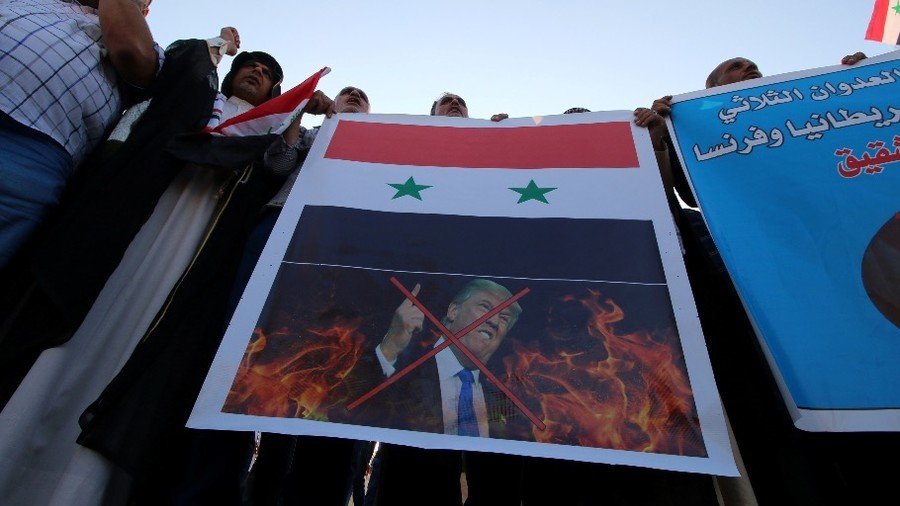
The US, France, and their allies should not leave Syria after the conflict is over, but must build a “new Syria,” French President Emmanuel Macron said in an interview with FoxNews.
“We would have to build a new Syria after war,” Macron said, adding that the US role would be “very important” in this process. He added that “it’s not automatically US forces” that should carry out this task, but “that’s US diplomacy and it’s your President.”
Giving his reasons for foreign states to remain in Syria, Macron listed the ‘usual suspects’ – Iran and Syrian President Bashar Assad.
“The day we’ll have finished this war against ISIS [Islamic State, IS]; if we leave definitely and totally – even from [the] political point of view – we will leave the floor to the Iranian regime, Bashar Assad and these guys and they will prepare [a] new war. They will fuel the new terrorists.”
Macron has recently been one of the strongest advocates for a prolonged American stay in Syria. He also ordered French forces to join the US-led missile strike on targets in Syria on April 14. The bombardment, which was described as retaliation for an alleged chemical attack by the Syrian government, did not receive approval from the UN Security Council and was conducted without the consent of the French parliament.
While stressing that Paris and allies should be involved in post-war Syria, the French leader still gave some credit to Russia and Turkey, saying that “even” these states will have an “important role.”
Washington and its allies, including France, launched their campaign against Islamic State in Syria in 2014. Apart from airstrikes, it involved support for the so-called “moderate opposition” on the ground with training and weapons. Later, Washington and Paris dispatched limited contingents of troops to Syria, triggering protests from Damascus.
While the US and its allies simply notified Syria before their counter-terrorism campaign kicked off, Russia and Iran have been acting in the country on the request of President Assad.
Moscow and Tehran have also accused Washington of doing nothing to fulfil the declared task of fighting Islamic State, instead working hand in hand with terrorist groups to topple the Syrian government. Notably, the rise of ISIS in Iraq and its further spread to war-torn Syria was enabled by the chaos left after the US-led invasion of Iraq in 2003.
While Russia has indeed assisted the Syrian forces with airstrikes against terrorists, it also launched a large-scale humanitarian operation, delivering food and essential supplies to thousands of Syrians. Moscow has repeatedly invited its Western partners to join the efforts, but US coalition members have been reluctant to provide aid to the regions liberated by Syrian government forces.
The diplomatic efforts of Russia, Turkey, and Iran as part of the Astana peace process provided for the creation of several de-escalation zones in Syria, which led last year to the cessation of hostilities in vast parts of the country.
In late March, Donald Trump said the US would be "coming out of Syria very soon" and letting "other people take care of it now." However, the White House spokesman later corrected the president, saying that Islamic State should be crushed before the 2,000 US troops return home. Other US officials, including Defense Secretary James Mattis and UN Envoy Nikki Haley, announced an even broader set of US goals in Syria.
According to Haley, it wasn’t only about defeating the terrorists, but also making sure chemical weapons aren’t used again and monitoring the actions of Iran – which could well have an indefinite time frame. In early April, there were also reports that the US military is considering the establishment of new military bases in northern Syria, with the American presence in the area to be funded by Saudi Arabia.
If you like this story, share it with a friend!
